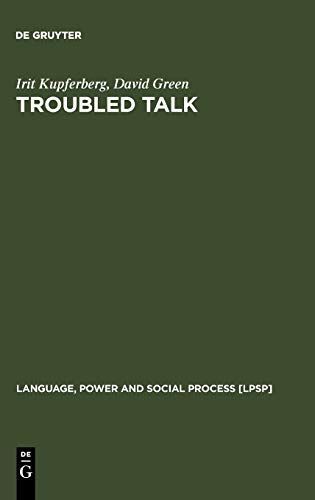
Troubled Talk Metaphorical Negotiation in Problem Discourse
How is meaning constructed discursively by participants in problem discourse? To which discursive resources do they resort in order to accomplish their complicated tasks of problem presentation and negotiation of possible solutions? To what extent are these resources related to the interactional and meaningful construction of problems and solutions? Irit Kupferberg and David Green- a discourse analyst and a clinical psychologist- have explored naturally-occurring media, hotline, and cyber troubled discourse in a quest for answers. Inspired by a constructivist-interpretive theoretical framework grounded in linguistic anthropology, conversation analysis, narrative inquiry, and clinical psychology as well as their professional experience, the authors put forward three novel claims that are illustrated by 70 attention-holding examples. First, sufferers often present their troubles through detailed narrative discourse as well as succinct story-internal tropes such as metaphors and similes- discursive resources that constitute two interrelated versions of the troubled self. Particularly interesting are the intriguing figurative constructions produced in acute emotional states or at crucial discursive junctions. Second, such figurative constructions often 'lubricate' the interactive negotiation of solutions. Third, when the figurative and narrative resources of self-construction are employed in the public arena they are used and sometimes abused by the media representatives, depending on a plethora of contextual resources identified in this book.